 “I started rowing when I was 16,” Robbie Manson (pictured) writes in a new essay published on OutSports. “Who’s going to suspect that I’m gay if I’m a rower, right?”
“I started rowing when I was 16,” Robbie Manson (pictured) writes in a new essay published on OutSports. “Who’s going to suspect that I’m gay if I’m a rower, right?”
For years, the Olympic rower for New Zealand struggled with accepting his sexual orientation.
“Deep down I was terrified of anyone finding out that I was gay, especially my teammates,” Manson continues. “I seriously thought that if anyone found out I wouldn’t be able to row anymore. The thought of coming out, in my mind, felt so limiting and terrifying.”
Manson says he feared seeming “inadequate” to others.
How about we take this to the next level?
Our newsletter is like a refreshing cocktail (or mocktail) of LGBTQ+ entertainment and pop culture, served up with a side of eye-candy.
“In a strange way, I looked down on other people who were gay, and to a degree felt sorry for them, thinking to be gay was to be ‘less than,'” he writes. “I knew I was gay too, and I hated myself because of it. I would get quite depressed about.”
Until, he says, he realized: “It was all in my head.”
Throughout his teens, he grappled with conflicting feelings about who he was and who he was supposed to be.
“When I was 19,” he writes, “I knew I was attracted to guys, but I still didn’t want to admit it to myself. I thought that I could just deny those feelings and be straight.”
Then something surprising happened. Mason’s older brother, Karl, who is also a rower, came out to him.

“I was initially shocked,” he says. “But then I sat back and realized that there had been little clues all along — I had just been blindly caught up in my own struggle. But I was in no way ready to admit that I was gay to myself let alone come out to anyone else.”
Two years later, Manson decided he was finally ready. He came out to his brother when he was 21, and 10 months after that, he came out to his mother, who was very supportive. Over time, he found the courage to come out to even more people, including his friends and teammates.
“It was the night after being named to the NZ rowing team for the London Olympics that I came out to more people,” he writes. “I was ecstatic to be selected in the quad. Going to the Olympics was a dream of mine ever since watching the Sydney Games when I was 10 years old. We were having a few drinks and near the end of the night I had a heart-to-heart with two of my friends. In a very emotional state I told them that I was different, and then finally that I was gay.”
“Much to my surprise,” he continues, “everyone was fine with it. I didn’t have a single bad reaction, and most people were demonstrably supportive.”
After years of struggling with his sexual orientation, Manson says, he was finally able to accept himself for who he was.
“I feel like my perspective has changed so much and now I’m not only proud to be gay, but I’m glad that I am,” he writes. “I wouldn’t want to be any other way.”
“I have learned so much about myself and what it means to be gay over the past couple of years, and also what it means to be gay in a competitive sporting environment,” he concludes. “It’s how hard you’re prepared to work for something and your talent that determines what you can achieve, not your sexuality.”
Related stories:
College Athletes Are Leading The Way For The First Pro Star To Come Out
Notre Dame Tennis Star Matt Dooley’s Remarkable Journey To Self-Acceptance
College Swimmer Parker Camp Told Everyone He’s Gay. The Reaction He Got Will Inspire You

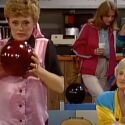
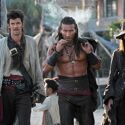
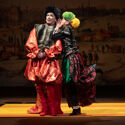



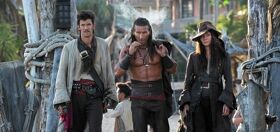
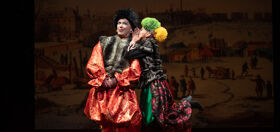
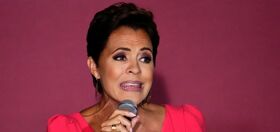
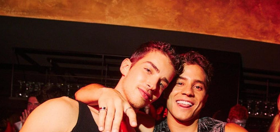
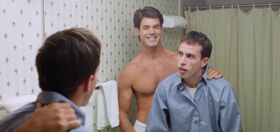
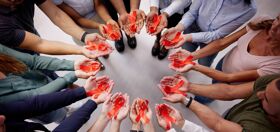

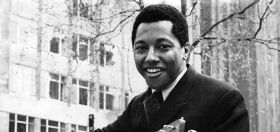
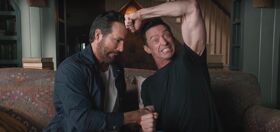
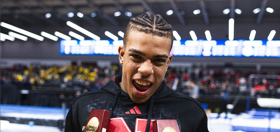

kaalkaczmarek
A weightlifter and now a top rower come out this week. It’s a good week for gay diversity (and eye candy)
enlightenone
“Inspiring” IF this was 1980! Rowing not a gay sport? Would like to hear MORE OF MICHAEL SAM PLEASE or an OUT Navy Seal!
jason smeds
Gorgeous man.